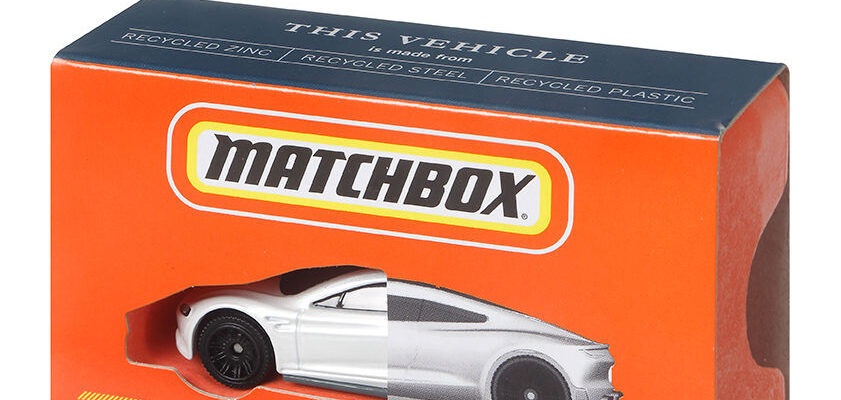- Email: admin@deluxediecast.com
- Jakarta, Indonesia
Sender
Sender
Instructions
Kemayoran, Jakarta, ID

Matchbox is one of the most iconic diecast car brands, known for its realistic miniature models and long-standing history in the toy industry. Established in 1953 by Lesney Products, Matchbox became famous for producing small, affordable, and highly detailed models of everyday vehicles, making it a favorite among children and collectors alike. In this article, we explore the rich heritage, unique features, and global influence of Matchbox in the diecast world.
The Origins of Matchbox
The story of Matchbox began in post-war Britain, where Lesney Products founders Leslie Smith and Rodney Smith sought to create affordable toys for children. The name “Matchbox” came from the requirement of one of the founders’ daughters, who could only bring a toy to school if it was small enough to fit inside a matchbox. This led to the development of the original Matchbox cars—small, detailed, and highly portable.
The first Matchbox model, a road roller, was followed by a series of construction and utility vehicles. The company’s decision to model everyday vehicles rather than racing or fantasy cars gave it a distinct identity, providing children with toys that mirrored the real world.
Key Features of Matchbox
1. Realism and Variety Matchbox is celebrated for its accurate representations of real-world vehicles. From cars, trucks, and buses to emergency vehicles and construction equipment, Matchbox offers a diverse range of models. This attention to realism sets Matchbox apart from other diecast brands, which often focus on fantasy or exaggerated designs.
2. Durability Matchbox models are known for their sturdy construction. Made primarily from diecast metal, these toys were designed to withstand rough play, making them ideal for children while also appealing to adult collectors seeking durable, long-lasting pieces.
3. Affordability One of the hallmarks of Matchbox is its affordability. From the very beginning, Lesney Products aimed to create high-quality models that were accessible to everyone. This commitment to affordability made Matchbox toys a staple for families worldwide.
4. Global Influence As Matchbox expanded its product line, it began to model vehicles from different countries. This international appeal made Matchbox popular across the globe, as children could collect miniature versions of the vehicles they saw in their own cities.
The Evolution of Matchbox
In the 1970s, Matchbox faced growing competition from Hot Wheels, which introduced faster, flashier cars with eye-catching designs. In response, Matchbox diversified its offerings by adding more sporty and performance-oriented models. However, the brand retained its focus on realism, producing vehicles that closely mirrored their real-life counterparts.
In 1997, Mattel, the parent company of Hot Wheels, acquired Matchbox. Despite now being under the same umbrella, Matchbox has maintained its distinct identity. While Hot Wheels focuses on bold, exaggerated designs, Matchbox remains dedicated to realistic, everyday vehicles, offering collectors and children a more grounded alternative.
Matchbox Superfast
In 1969, Matchbox introduced the Superfast series to compete with the growing popularity of Hot Wheels. The Superfast models featured low-friction wheels, allowing them to glide more smoothly and at higher speeds on toy tracks. This innovation helped Matchbox stay competitive and broadened its appeal to kids interested in racing.
Matchbox for Collectors
While Matchbox has always been popular with children, it has also cultivated a dedicated collector base. Vintage Matchbox models, particularly those from the Lesney Era (1953–1982), are highly sought after by collectors. Some of the rarest and most valuable Matchbox models can fetch high prices at auctions, with models like the 1961 Magirus-Deutz Crane and 1965 BP Dodge Wrecker being among the most coveted.
In recent years, Matchbox has also released Collector Editions, aimed at adult collectors who value authenticity and detail. These premium models often feature intricate paintwork, rubber tires, and more accurate proportions, making them stand out in the diecast market.
Matchbox and Sustainability
In 2020, Matchbox announced a new commitment to sustainability by launching its first-ever diecast car made from 99% recycled materials—the Tesla Roadster. This move marked the beginning of Matchbox’s initiative to reduce its environmental impact. The brand also pledged to make all of its diecast models and packaging from recycled or recyclable materials by 2030, reflecting its dedication to creating eco-friendly products.
Matchbox in Pop Culture
Matchbox has maintained a strong presence in pop culture for decades. From being featured in television shows and movies to inspiring nostalgic memories for generations of car enthusiasts, Matchbox holds a special place in the hearts of fans around the world.
In addition to standard vehicles, Matchbox has released models tied to popular franchises, including Jurassic Park, Top Gun, and NASA, blending realism with elements of fantasy and imagination.
Conclusion
Matchbox’s enduring legacy is a testament to its ability to adapt while staying true to its core values—realism, affordability, and quality. Whether you’re a child discovering the joy of miniature cars or a seasoned collector seeking detailed diecast models, Matchbox offers something for everyone. As the brand continues to innovate with sustainability in mind, its future looks as bright as its storied past.


Leave A Comment